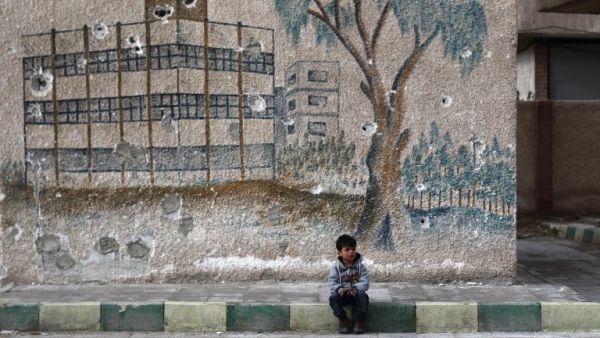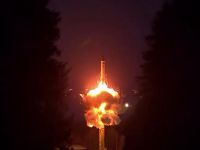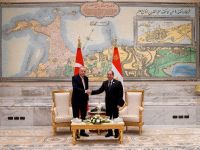There have been more than enough fodder for the propoganda war during the last five years of conflict in Syria. So it shouldn't come as much of a surprise that in Ghouta, the Syrian army recently predicated its attack by dropping leaflets detailing plans.
Al Jazeera reports the leafets appeared in the city, located in the outskirts of Damascus, during the last week of 2015 and warned that the "army was coming," to return the city to the"arms of the nation."
Some 160,000 leaflets with various messages were reportedly dropped during this time.
Here's an example, via Twitter:
Syrian Air Force drops over 160,000 "surrender now" leaflets dropped ... https://t.co/vVoRQmBkFN #Syria pic.twitter.com/HhDVH75hAM
— Al-Masdar News (@TheArabSource) December 28, 2015
Translated by Al Jazeera, the letter reads: "You are surrounded. The army is coming. Al Ghouta will return to the arms of the nation."
Leaflets with similar messages were also dropped—Al Jazeera photographed another flyer found in the city asking those who "took up arms against the state: what have arms achieved you?"
Many see the use of flyers as a form of pschological warfare. And it's a tactic that's been used across the board in the conflict, dropped by Russian, Syrian and US planes alike, with various aims. In 2014, the US made headlines for dropping particularly gruesome anti-Daesh leaflets encouraging people not to join the militant group.
Rebel-held areas like Daraya and Moadamieh, both southwest of Damascus, have reported seeing similar tactics by the regime since the beginning. Sometimes such messages saw defections from the Free Syrian Army or surrenders a few years ago, according to one aid worker in the area.But especially in places hit as hard and as long as Ghouta, today the practice has little effect so deep into the conflict.
"Those who witnessed the destruction and raised their weapons to fight against the injustice and bring down the oppressive regime are completely unfazed by these empty words," Salim al-Shami, a humanitarian and development worker in East Ghouta, told al Jazeera.







